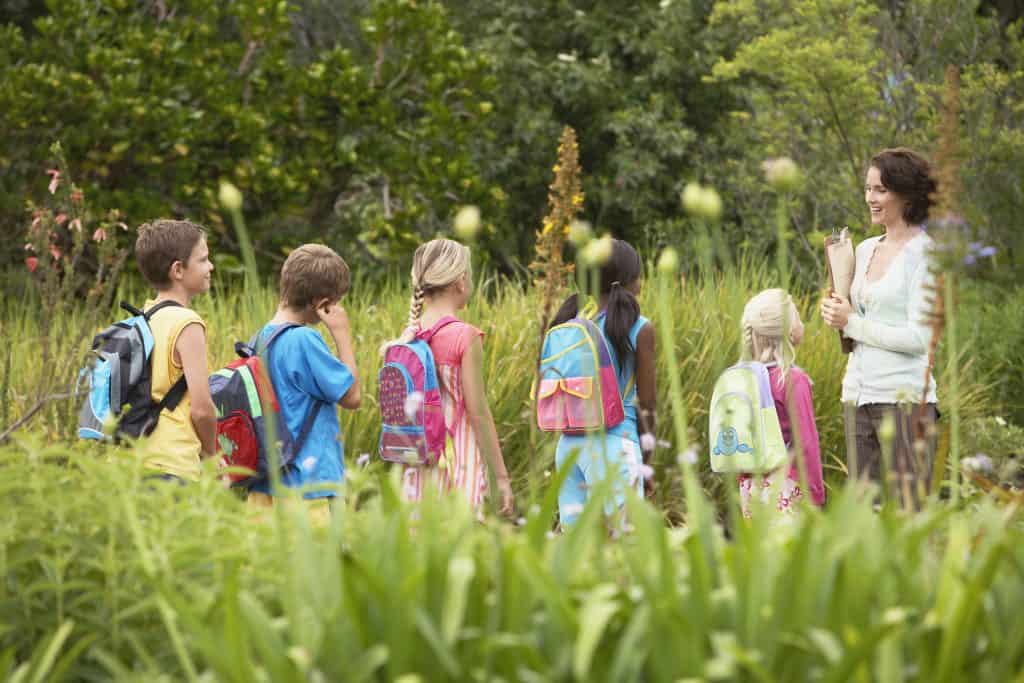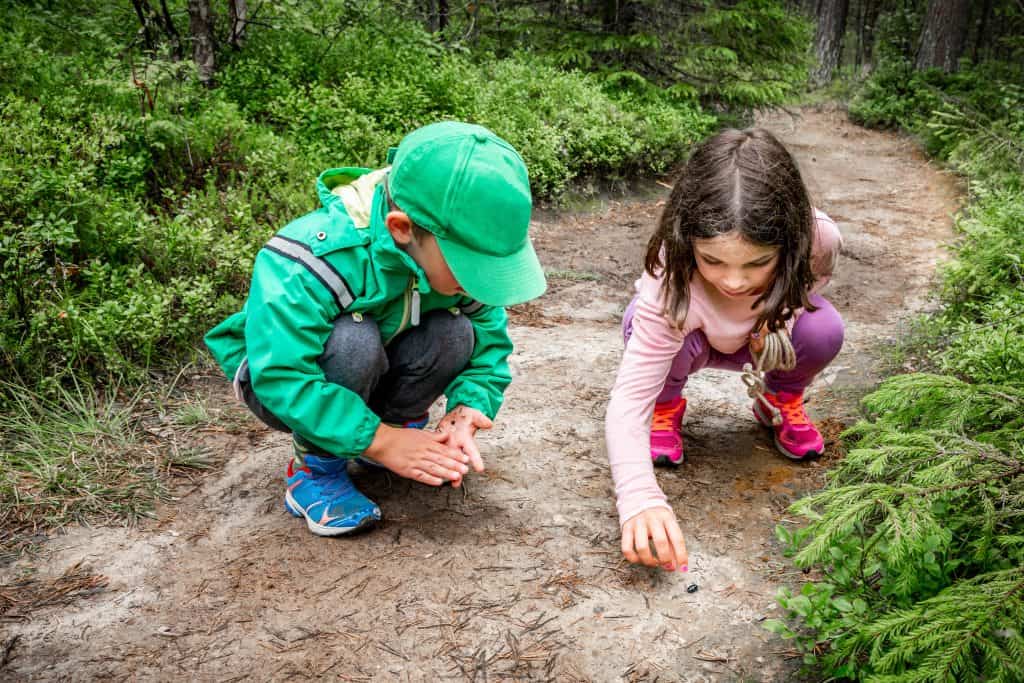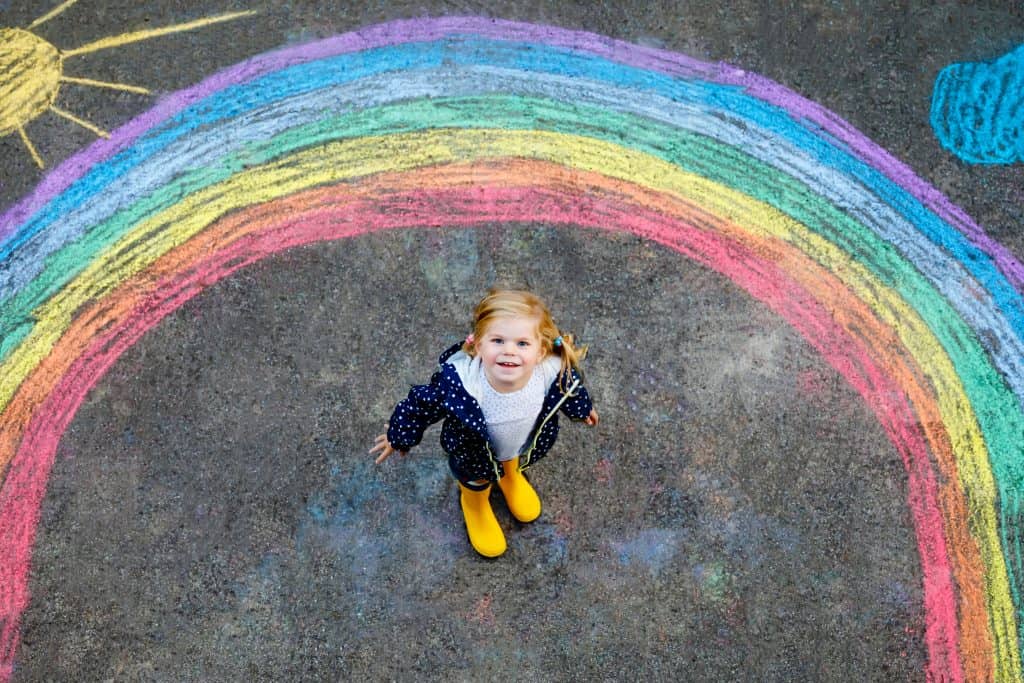Life after Lockdown in the Early Years Classroom: Embracing Challenges as Opportunities!
Dr Glenda Walsh (Head of Early Years Education, Stranmillis University College) and Mrs Stephanie Gillespie (Nursery School Principal and Early Years Specialist)
Preparations are underway in Northern Ireland for the reopening of all schools in September 2020, after a long period of lockdown, having been closed to the majority of pupils since mid-March. Clearly, navigating the challenges brought to the Education sector by a global pandemic invites decision-makers to do more than simply tinkering cautiously with pre-lockdown policies and practices. For the youngest children in our school settings, there are principles of early years pedagogy that endure, and we advocate for all that we know to be fundamental to the high quality and playful experience that is the right of every young learner. In this blog, we intend to address some of the obstacles specifically facing the early years phase of education and to offer potential solutions to ensure that the needs and interests of our young children are fully embraced. Major seminal studies (e.g. Heckman et al, 2010 and Schweinhart et al, 2005) have clearly showcased time after time the importance of getting it right in the early years of schooling, not only for children’s learning and development, but also for society and the economy as a whole. Let’s ensure that as the restart to school begins, we don’t let our youngest children down!
The post is structured using the framework of priorities outlined recently by the Minister of Education in the proposed Restart programme.
Physical Protection in the Early Years
A key priority is Physical Protection to ‘support, protect and enable our workforce as they lead the return to “new normal” education arrangements – protecting learners also.’ Evidence coming from the Danish model of schools’ re-opening shows that risk can be managed through a variety of measures. In some Danish early years settings this has meant adjusting class size to ‘bubbles’ of no more than 10. This is more straightforward in Denmark as the average class size at primary is 19 pupils, whereas the average Foundation Stage class size in NI is over 25. Cognisance needs to be taken of this difference and flexibility given as settings seek to put adequate measures in place for individual contexts. A ‘one-size-fits-all’ approach will not do. However, as we explore the issue of bubbles within our early years classrooms/settings, perhaps it is time to relish the opportunity of reduced class sizes and enhanced adult teacher-child ratios, something that we in the early years sector in Northern Ireland and the UK in general have been calling for over a long period of time.
Indeed a recent Guardian article referring to the Danish experience of re-opening schools reported that smaller groups bring a higher degree of wellbeing for pupils, and give the teachers more contact with them during the day. Whether we need to make use of a volunteer workforce as was the case in the NHS or embrace a blended learning approach to facilitate such a reduction in class numbers, let’s be creative in resolving this dilemma to allow our teachers to build those warm and secure relationships that are so paramount in an early years classroom, tune into all young children’s needs and interests and afford them learning opportunities that allow them to reach their full potential.

Maintaining a distance of up to 2m has become the new norm in many settings that have re-opened internationally and more recently in England. Images of desks spaced out in our classrooms, with painted markings on the floors, have flashed across our TV screens and the immediate response of those who know and work with our youngest children is that such measures will never be a complete success in an early years classroom. But how else do we keep our youngest children and their teachers safe? The answer lies in extending the early years classroom beyond its four walls and embracing the natural outdoors, as scientific advice has indicated that the spread of such a disease is less prevalent outside. Our Scandinavian colleagues have clearly showcased the potential of the outdoors, not only in terms of the available space to enable a degree of distancing to take place, but to zone off particular areas and through the use of, for instance, coloured arm bands, encourage children to play with these same children on a daily basis without being in contact with any other class peers. In this way, we would recommend the bubble idea being practised not only indoors but also in the outdoors. In addition, according to the Open University’s OPEN space Research Centre, there is a wealth of evidence emphasising that time spent outdoors increases life expectancy, improves well-being, reduces symptoms of depression and increases a child’s ability to function in school. Time spent in the outdoors is surely needed now more than ever where children can engage in a variety of playful experiences in their bubble, whether it be building dens, exploring wildlife and gardening, playing in the mud kitchen, engaging in simple scientific experiments with water or undertaking a range of physical exercises. Making effective use of the outdoors is therefore no longer a choice for our early years teachers/practitioners; it is an essential.
Hygiene and Infection Control Protocols
Adjusted hygiene procedures based on sound risk-assessment will undoubtedly be reassuring for parents and staff alike. Some schools in England have opted for handwashing on arrival at school and at hourly intervals. Nationally and internationally, schools have staggered starting and leaving times. Some staff understandably have expressed their anxieties about being adequately protected and there is discussion about the wearing of masks, visors and gowns. We would urge a risk-benefits approach at this point for our youngest children in Preschool and Foundation Stage. Early years practitioners are very creative and will rise to the challenge of implementing hygiene protocols that are less remote and possibly alarming for our youngest learners. Our young children are continually expressing their deep thinking around issues that adults might feel they alone have concerns about. One 4-year-old recently put on his Spiderman costume and then his hand gel and decided he was “going on a mission to save my friends! The virus is hurting people”. Likewise, many creative teachers have been encouraging young children to practise appropriate hygiene measures through the use of popular songs and rhymes such as Baby Shark, Happy Birthday and the Elbow Dab.
The need to constantly clean resources, in particular play resources, is causing some teachers to suggest that play may have to be abandoned for a period of time. However, the abandonment of play, in such a time of crisis, could only increase the anxieties that many children are already experiencing and result in a much more challenging transition back into school. We fully appreciate that the safety of children and staff is paramount, but making use of open-ended and natural materials in this current climate could act as a possible substitute. We suggest the use of junk materials in the form of cardboard boxes, rope, string, polystyrene, plastic bottles, blocks and containers to name but a few, and an array of natural materials including bark, seeds, mud, stones, pebbles, leaves, twigs and straw, all of which could be put in the bin after any play session and easily replaced for the next one. Early years specialists have been advocating a ‘less is more’ environment in early years settings for many years, where the emphasis on artificial resources is greatly reduced. Embracing such creative possibilities will enable young children to continue to enjoy the power of playful learning in a safe and secure manner.

Standards of Learning in the Early Years
Even before the Covid-19 outbreak, many in the Early Years community of practice were concerned at the downward pressure of the curriculum particularly for learners in the Foundation Stage, leading to a narrowing of the curriculum and an over-emphasis on core skills. Whilst an effort to provide a catch-up curriculum or to ‘maintain (or re-dress) educational standards’ is certainly needed in our schools, we might ask ourselves if such a ‘re-dress’ is necessary in the early years. Children’s academic learning may not have been progressed in the same way as it might have been at school, but it is important to note that many children have developed an array of skills and dispositions during this period of crisis that may be advantageous to them for future learning and indeed for life in general. A recent report on parents’ experiences of home-schooling, conducted by the Centre for Research in Educational Underachievement at Stranmillis University College, brought to our attention how young children, as compared with their older counterparts, appear to have enjoyed the remote learning experience at home with the support of their teachers and seemed quite motivated by it. Indeed Paul Ramchandani, Professor of Play in the PEDAL Centre at the University of Cambridge, has cautioned against turning homes into schools during the lockdown and instead recommended the power of play for all young learners.
We know that young children flourish with a holistic play-based approach. They especially need to practise skills that can only be facilitated by a rich, unhurried and play-based experiential curriculum. Such a playful learning experience affords opportunities for teachers to tune into the needs and capabilities of all young learners, providing each individual child with the support and/or challenge he/she requires and in so doing enabling a relaxed and pressure-free environment for all young learners as they transition into the school context. The ‘Pedagogy of Play’ research at the Harvard Graduate School of Education is particularly illuminating in terms of cultivating school cultures that value and support learning through play and provide us with much food for thought at this present time. The impetus is there for ‘outside the box’ thinking on how this playful approach might be facilitated in the new norm. Dr. Bo Stjerne Thomsen (Chair of Learning through Play in the LEGO foundation) writes of how the International School in Billund, Denmark transitioned to a distant learning approach using playful pedagogies, in recognition of the fact that children have an amazing natural potential to learn through play. In recent months in Northern Ireland it has similarly been encouraging to see the excellent response of the Education sector in supporting Home Learning through an engaging and creative use of online platforms (e.g. https://www.stran.ac.uk/ideas-for-active-minds/). It will be important for our youngest learners that any blended approach continues to incorporate active and playful methods for our youngest learners rather than a retreat into a more formal and paper-based approach or indeed an over-emphasis on digital learning, the negative impact of which has been clearly articulated in a recent report by Australia’s Gonski Institute for Education.
Well-being
Playful interactions and opportunities may be more essential now than ever. Mental health experts have advocated that play is prioritised rather than diminished when young children return to school due to the possible impact that the lockdown might have had on children’s mental health.
Recent experiences in one Covid cluster hub school in Northern Ireland reveal children’s emotional uncertainty and its impact on their mental health and wellbeing. Certainly, the voice of one 5-year-old highlights the need for social interaction and playful experience:
“I hate this Coronavirus. All I want to do is see my granny and grandpa. Why don’t people just do what they’re told and then all this will be over and I can play with my friends?”
Young children’s voices reveal their deep need for emotional connection, their thinking and possible underlying anxiety: “I miss my friends.
“When is all this Coronavirus going to be over? Where’s the hand sanitiser? You have to use it so you don’t get coronavirus. Will I ever go to nursery to see my friends again?”
In the words of another young child,
“It makes me very sad that I can’t see my friends and my teacher. I really miss the playground – especially the climbing frame.”
We therefore welcome the Minister identifying ‘the mental health and emotional wellbeing of the education workforce and learners as they return to education’ as a focus of the Restart Programme.
The youngest children’s voices remind us of the necessity of prioritising children’s play and social interaction with friends rather than focusing on academic progress. Many parents and teachers will understandably be anxious about academic progression and of course there will be a time to prioritise these areas in future. But as the lockdown restrictions begin to ease and a new normal is introduced into our classrooms, it is important to emphasise a balanced approach and to explicitly highlight the social and emotional benefits of play and socialising with peers for children in Nursery and the Foundation Stage. A risk-benefits approach, which recognises the benefits of play in helping relieve stress and anxiety among the children while simultaneously ensuring children are not exposed to unnecessary risk, is therefore paramount.

Reasons to study at Stranmillis
Student Satisfaction
Stranmillis is ranked first in Northern Ireland for student satisfaction.
Work-based placements
100% of our undergraduate students undertake an extensive programme of work-based placements.
Study Abroad
All students have the opportunity to spend time studying abroad.
Student Success
We are proud to have a 96% student success rate.
